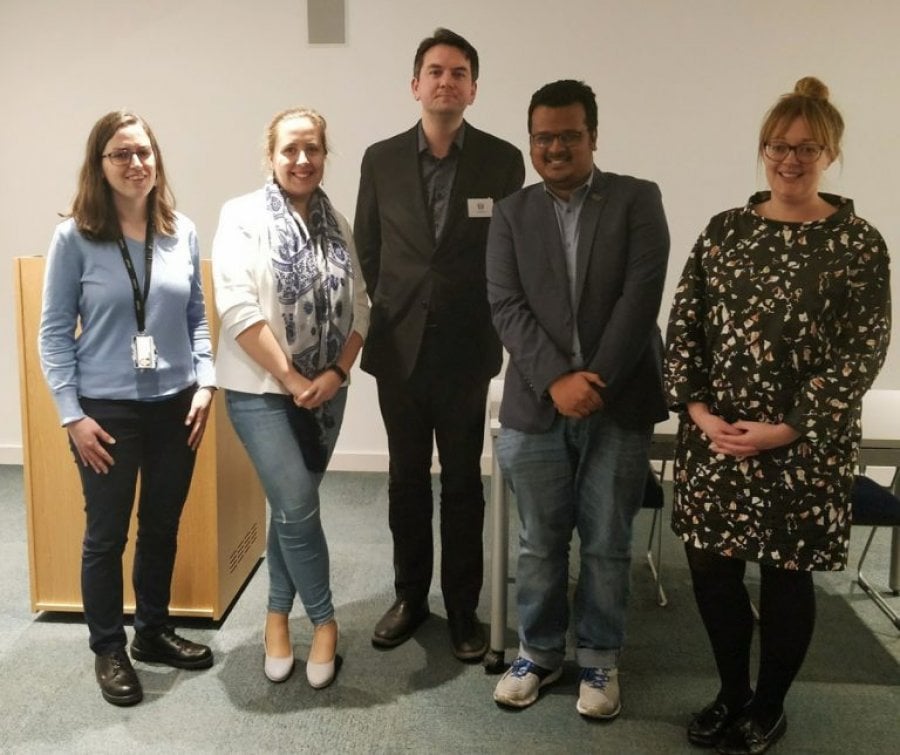
By Dr. M. Tasdik Hasan
MBBS, MPH(Epidemiology), CCD (BIRDEM), PGDDM (DU)
MSc Candidate, Global Mental Health, King’s College London & London School of Hygiene & Tropical Medicine
The Global Mental Health Conference is an annual event showcasing the latest research on the many and varied challenges of mental health around the world. It was held this year at the Green Templeton College, University of Oxford on January 27th.
As an MSc student in LSHTM’s Global Mental Health Program, I was excited to attend and share my own research on mental health services available to victims of climate change. The expertise and passion at the event was inspiring to me, with personal highlights including learning from renowned experts in global mental health issues and psychiatry, from Prof Alain Stein, Prof Ilina Singh, Dr Nick Rose, Prof Keith Hawton, Dr Mina Fazel, to Dr Erminia Colucci.
At one point in a discussion about migration and mental health, Dr Fazel said “Refugee kids are like any other kids. They want and need friends.” That humanising thought has been stuck in my mind since – I keep thinking how powerful a single thought like that can be in initiating a push to figure out how to support populations affected by crises sustainably.
I was also excited to meet Dr Niall Boyce (editor of The Lancet Psychiatry) again, after a first meeting in Berlin during the World Health Summit 2016. Back then, he had advised me to proceed towards my passion on mental health research – advice that actually helped me make that decision during a pivotal point of my career and led me to LSHTM.
Now, the research I work on focuses on cyclone-affected areas of Bangladesh, as the mental health of people who suffer the consequences of climate change disasters is often overlooked. In a small coastal village recently affected by cyclones, I recently conducted a study on the mental health services available in a humanitarian context. Despite the many psychological impacts in the aftermath of cyclones, from PTSD to depression, there were no action plans or initiatives to address these issues. The project highlighted this critical gap, and recommended resilient, responsive, and sustainable health systems as crucial to the well-being of this geographically and economically vulnerable population.
At the conference, I presented a poster on this research, which then won The Lancet Prize for one of the three best posters. This was an overwhelming experience, and the second prize I have been awarded since enrolling in the program – the other being the New Voices in Global Health at the World Health Summit in Berlin 2017. I was humbled by these opportunities and am determined to work hard through the rest of my studies at LSHTM and beyond to continue achieve excellence to improve health worldwide.
If you enjoyed this article and would like to build a career in global health, we offer a range of MSc programmes covering health and data, infectious and tropical diseases, population health, and public health and policy.
Available on campus or online, including flexible study that works around your work and home life, be part of a global community at the UK's no.1 public health university.
